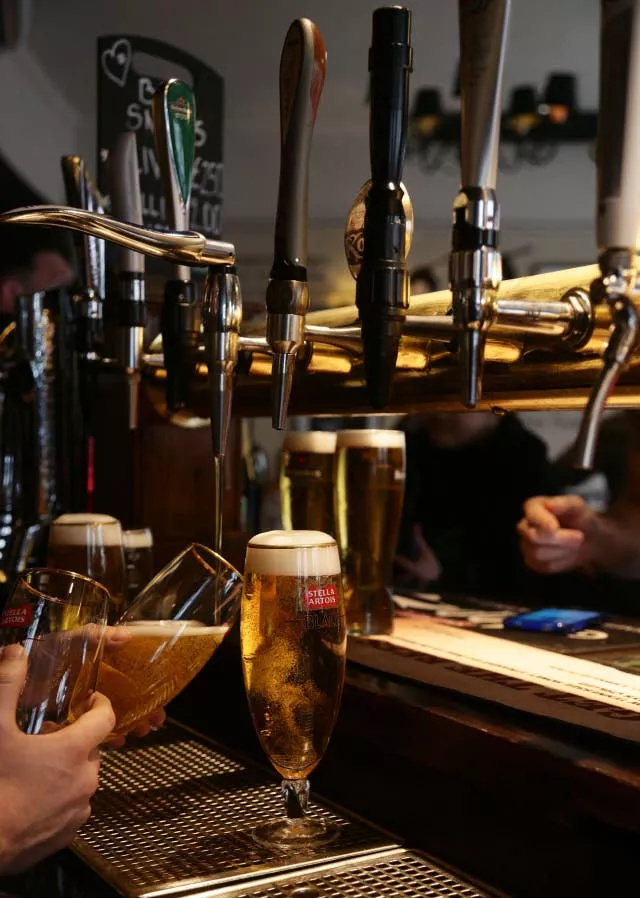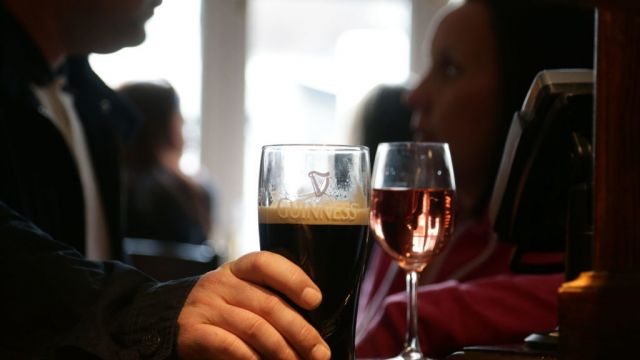The health minister said there are no plans to ban the sale of alcohol to people under the age of 21, despite a move to raise the minimum age for the purchase of cigarettes.
Under plans approved by Cabinet, the legal age for buying cigarettes and other tobacco products will rise from 18 to 21.
It would make Ireland the first country in the EU to take the measure.
On raising the age for buying alcohol, Stephen Donnelly said there is no advice that it would “necessarily be effective”.

“There’s no consideration of any changes on alcohol whatsoever. It’s never come up. It’s not being considered,” Mr Donnelly said on Tuesday.
“It’s not being considered by anybody. We have no clinical advice that it’s necessary or would necessarily be effective.”
He said that while there is a Government goal that no one in Ireland smokes, there is no such strategy for alcohol.
“There are obviously health implications of excessive drinking and on that Ireland has taken an important global leadership position,” he added.
“We’ve introduced the alcohol labelling to include a cancer warning and to include warnings on alcohol, which I think people really do need to know about.
“We brought in minimum unit pricing. We brought in several measures which I think are important in terms of tackling excessive and harmful drinking.
“But there’s a very different national strategy between alcohol and cigarettes.”
He said plans to increase the legal age of buying cigarettes to 21 should see a reduction in smokers by several percentage points.
Mr Donnelly also defended not including the sale of vapes in its proposed legislation, saying the clinical advice is “not in at this point”.
“We got very clear clinical advice in terms of mandating a minimum age of 18 for the sale of vapes based on cognitive development and impairing cognitive development,” he added.
“Clinical evidence may be emerging but it’s certainly not at the point of increasing from 19 and 20-year-olds but it is something that I think should be should be kept under review.”
The Fianna Fail minister went on to accuse the tobacco industry of “coming and having another go” in downplaying the dangers of vaping, similar to campaigns that were previously run by tobacco companies.
“We have ongoing and emerging evidence of the harms that vaping causes, including damage to the lungs,” he added.
He said the Government is introducing other measures around the advertising and licensing of vapes, and plans to ban the sale of disposable vapes.
“We’re also drafting legislation looking at colours and flavouring. My view, rightly or wrongly, is there has been a very cynical attempt to target young people with vapes,” Mr Donnelly added.
Minister of State Ossian Smyth said he is concerned about the environmental impact of vapes.
“What we’re seeing is in the last couple of years an explosion in use amongst teenagers, and that’s resulting in tens of millions of these vapes ending up in the environment,” he said.
“We’re now going to proceed, myself and the Department of Health, to seek a ban on disposable vapes.”
The Government’s latest move comes 20 years after Ireland became the first country in the world to ban smoking in workplaces, including pubs and restaurants.

Currently, 18 per cent of the population over the age of 15 are smokers.
The new proposal is designed to reduce Ireland’s adult smoking rate to less than 5 per cent.
Smoking and exposure to second-hand smoke kills an estimated 4,500 people a year in Ireland.
The Government said evidence shows that people are at high risk of becoming smokers between the ages of 18 and 21.
It added that raising the minimum purchasing age will make it harder for young people to access tobacco products through direct and proxy buys as well as social sources.
Health officials said smoking causes 13 per cent of all cancers and contributes to many preventable illnesses including respiratory and cardiovascular diseases, eye diseases, diabetes and rheumatoid arthritis.
It is also responsible for 5 per cent of hospital inpatient admissions, while the financial loss caused by smoking is estimated at €10.6 billion annually.
Chief Medical Officer Professor Breda Smyth said: “Our smoking rates are still unacceptably high, so I am delighted that we are progressing a strong population protection measure that will help bring us closer to the goal of a tobacco-free Ireland.”
The Bill will provide that the prohibition on tobacco product sales will not apply to those who are currently between the ages of 18 and 20.
The proposed legislation will not impact the minimum legal age of sale of nicotine-inhaling products or vapes.
Since December, the sale of vapes to under-18s has been banned. There is currently no proposal to extend this ban to the age of 21.
The Government said preliminary legal advice suggests Ireland cannot pursue a “smokefree generation” policy as has been suggested in other jurisdictions because of the EU’s single market rules and Tobacco Products Directive.







